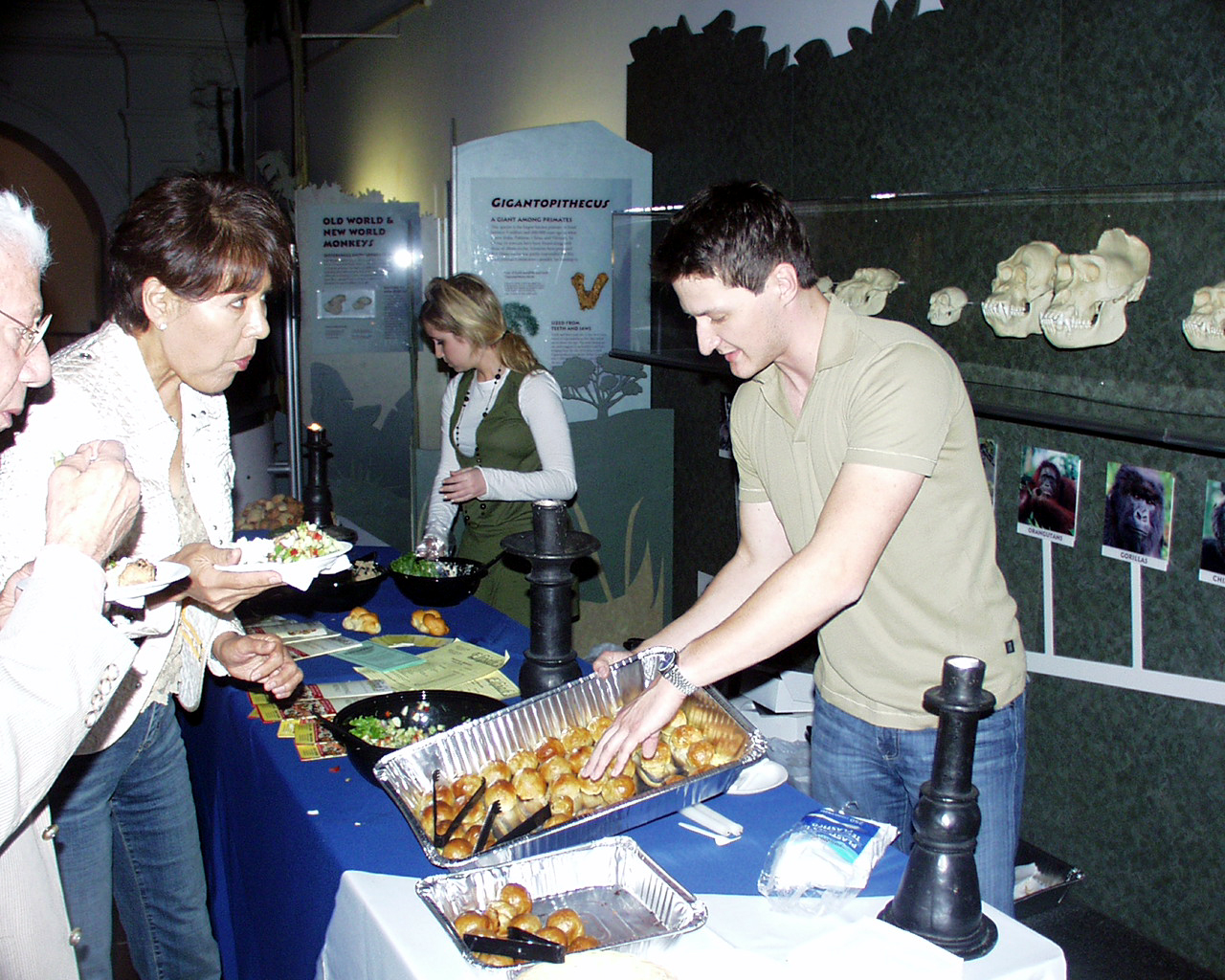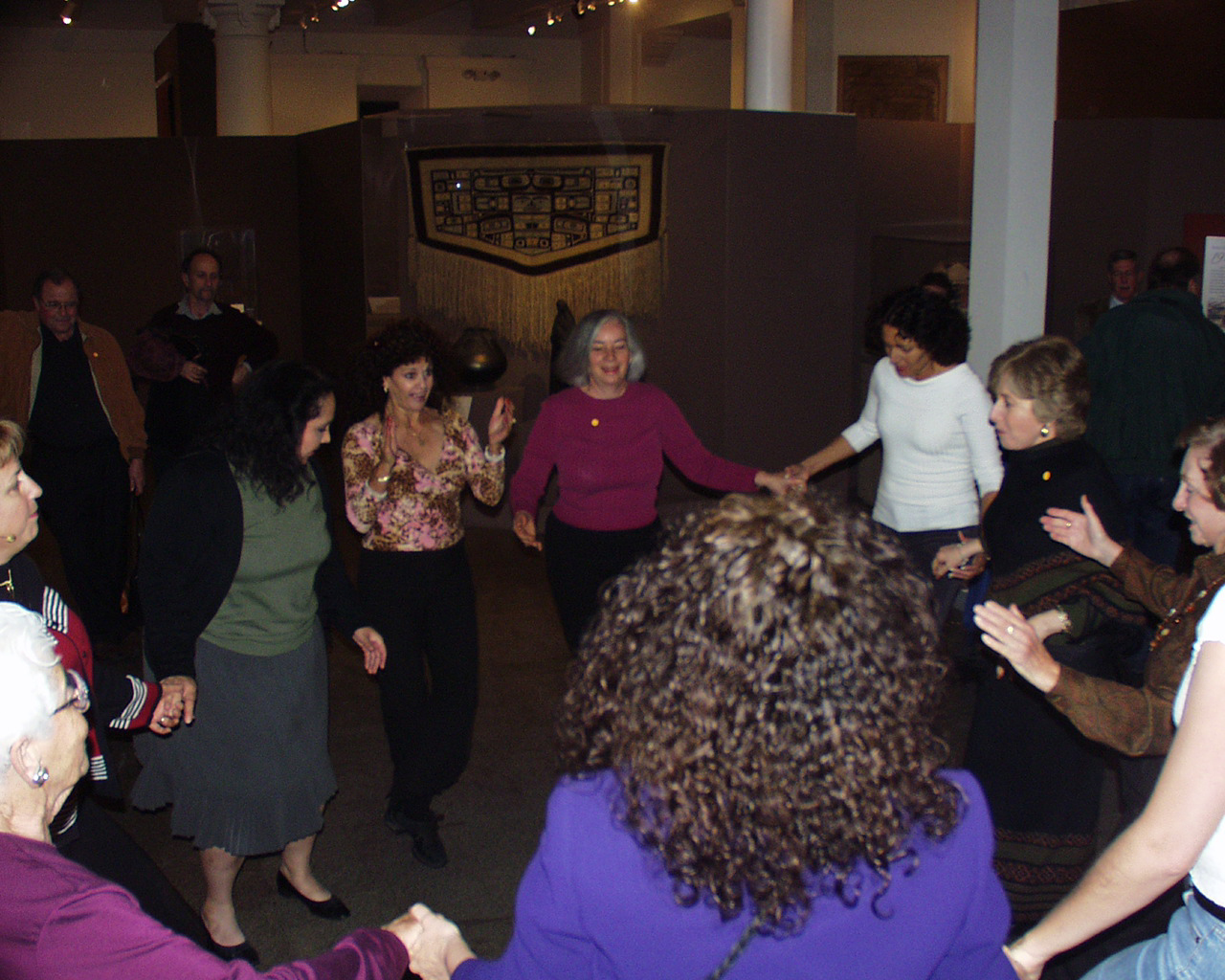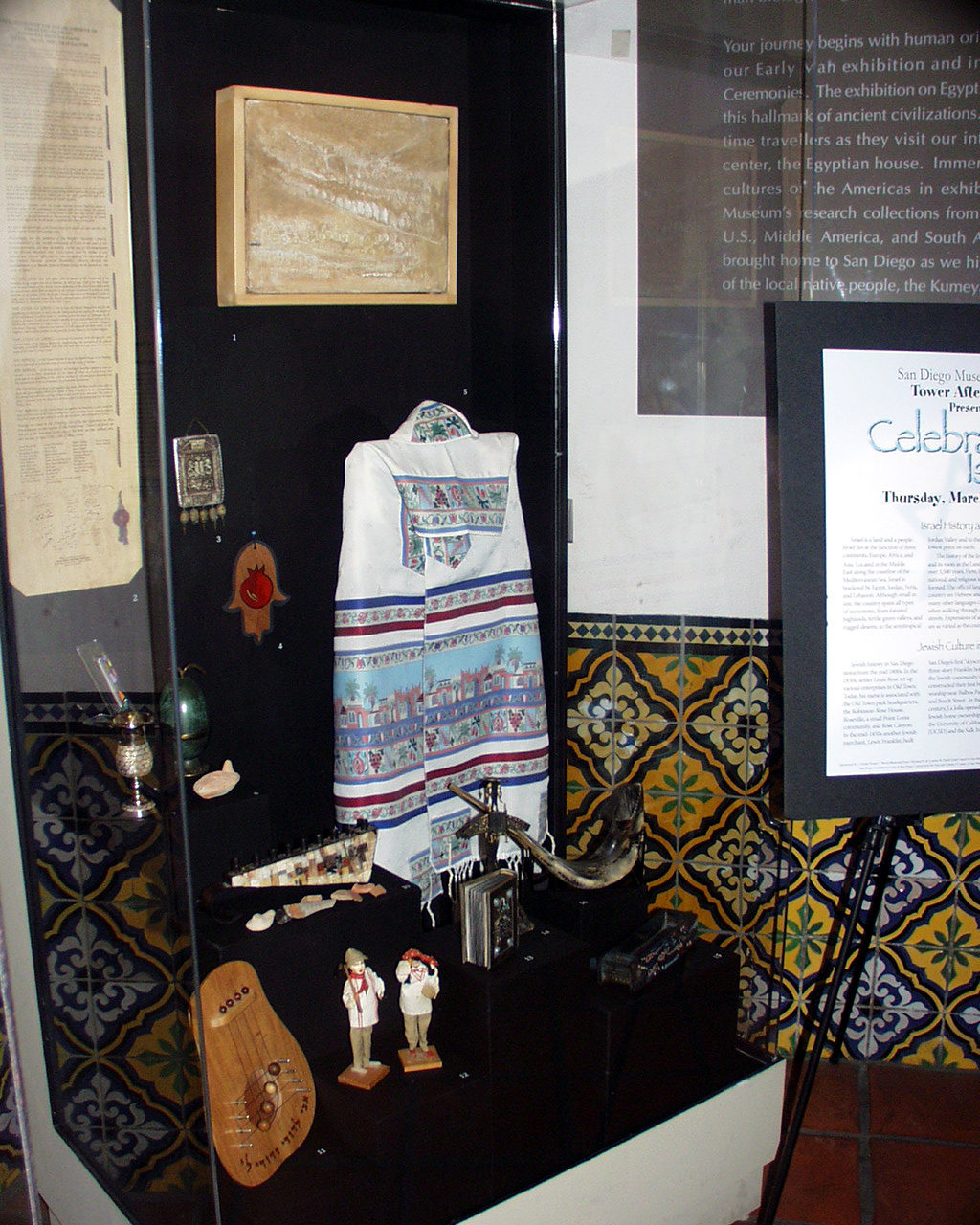|
By Donald H. Harrison
SAN DIEGO, Calif—It was Israeli night on Thursday evening, March 30, at the San Diego Museum of
Man. Spaced among the museum's exhibits on evolution, ancient
Egypt, and the indigenous civilizations of Panama, Mexico and Southern
California, were serving tables filled with traditional Jewish foods, if not
necessarily Israeli ones, like knishes, chopped liver and rugelach for museum
members to sample.

Josie Gomez, left, samples a knish dished out by Alex
Krasnikov of Elijah's Restaurant and Delicatessen, while in background Sammy
Sussman arranges the rugelach. Note the models of skulls and photos of
apes in the background
which are part of a regular exhibit on evolution at the San Diego Museum of
Man. (Photos by Donald H. Harrison
For those willing to try, Yoni Carr, an Israeli of Yemenite descent, led
traditional Israeli dances in the rotunda of the 90-year-old museum which every
month celebrates a different culture represented in the Greater San Diego area's
population. In February, the dances, songs, and foods of Spain were
featured; next month the "Tower After Hours" event will focus on the
culture of Italy.
The anthropological Museum of Man is located in the
California Tower, a landmark of Balboa Park, which is the cultural heart of San
Diego. Museums of art, photography, natural history, science, aerospace,
automobiles, sports, railroading and San Diego history are housed in
historic Spanish colonial-style buildings initially constructed for
international expositions of 1915 and 1935.
These museums compete for the visitors' attention with gardens, botanical
buildings, outdoor sculpture collections, a large outdoor organ where concerts
are given every Sunday afternoon, and a group of international
cottages—including one for Israel—where the stories of other countries are
told to visitors by volunteers. What is perhaps San Diego's best known
attraction, the San Diego Zoo, is in the northern portion of Balboa Park. Javier
Guerrero, Museum of Man director of operations, said the "Tower After
Hours" event, from 6 p.m. to 9 p.m., had a two-fold purpose: "to
introduce people who don't know or who have never experienced aspects of the
Jewish/ Israeli community and let them experience it. And then for the
community organizations themselves to come around one event—not as any one
organization, but as people coming together to celebrate that particular
community in San Diego."
The Museum of Man produced the Israel night with the cooperation of the United
Jewish Federation of San Diego County, especially its Young Adult Division (YAD),
and the Center for Jewish Culture which is housed at the Lawrence Family Jewish
Community Center in La Jolla. 
An exhibit case at the entrance to the Israeli party featured various ritual
objects of Judaism including a kiddush cup, mezuzah, menorah, mizrach, taillit
and kippah, oil lamp for sukkot, an etrog holder, a siddur, a shofar, gragger,
and a sculpture of a rabbi with a Torah. More secular Israeli subjects
were illustrated with a Jerusalem harp, a wooden chamsa, and a sand creation
depicting the Israeli desert by artist Rhea Carmi, whose other works are to be
exhibited in April at the Lawrence Family JCC.
A story board also discussed the local San Diego Jewish community, noting that
Jews had lived in the California city since 1850, the same year that California
became the 31st state of the United States.
The legend mentioned early pioneers Louis
Rose and Lewis Franklin, who both occupied important civic positions, and
also polio vaccine discover Jonas
Salk—who established the Salk Institute in La Jolla—as important members
of the San Diego Jewish community. Not mentioned on the caption, but of
particular interest to Balboa Park, was Marcus
Schiller, who served on the City Board of Trustees that had set aside the
land for the park.
Schiller went on to become the inaugural president of San Diego's first
synagogue, Congregation Beth Israel, which held Rosh Hashanah services in its
own building for the first time in 1889. Once located several blocks
from Balboa Park, the old temple building was relocated after it passed from
Jewish hands to the Heritage Park area of Old Town San Diego several miles away.
|

